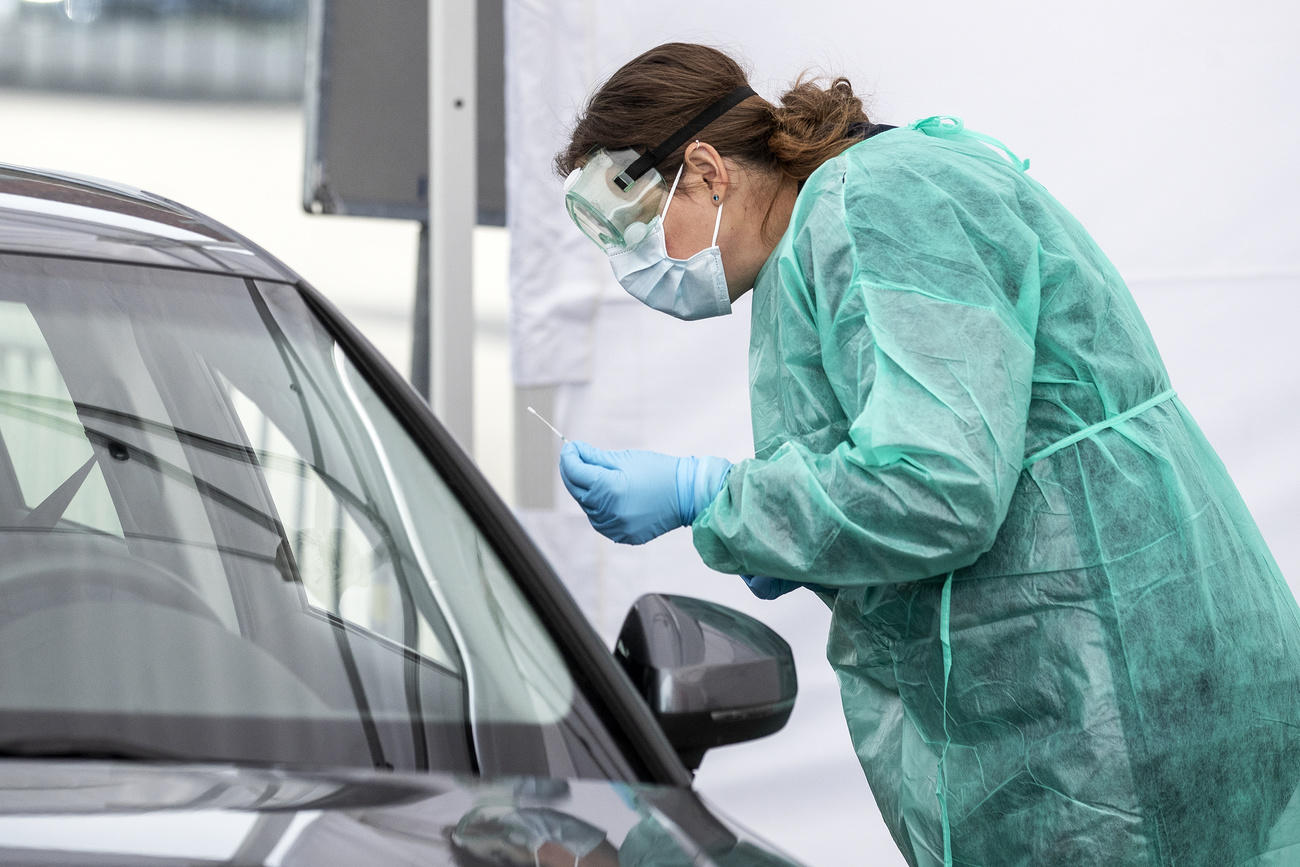
How horses helped create a faster Covid-19 diagnostic test

When Covid-19 interrupted one Swiss start-up’s plans for diagnosing respiratory diseases in horses, it decided to apply the technology to testing Covid-19 in humans.
If you’ve never heard of ender diagnostics, there’s a good reason for that. Before April, the company didn’t exist.
Earlier this year, Swiss start-up LiVET was about to ramp up field testing of its isothermal test designed to diagnose four of the most common respiratory diseases in horses when the coronavirus shutdown happened. Travel plans were put on hold and some machines LiVET planned to test diseases in horses were needed for Covid-19 testing.
With several bright scientists twiddling their thumbs, LiVET CEO Tim Pfister wondered if the company could apply some of its knowledge and resources to developing a test for Covid-19 in humans.
“We didn’t know how long the lockdown would last so we started asking ourselves if we could take what we know about diagnosing respiratory diseases in horses to develop a test for Covid-19,” Pfister told swissinfo.ch.
Pfister’s team doubled in size and, with existing investors and some additional private financing, created a new company: ender diagnostics. Earlier this week, less than two months after establishing the company, it received the CE mark – the European certification for compliance with safety and performance standards – for its first rapid Covid-19 diagnostics testExternal link called ender LAB.
With the CE mark, ender can now sell its test to hospital labs in Europe and Switzerland.
In July, it plans to launch a faster test and is also working on the “mobile ender test” which pairs the technology with a hand-held, portable device that would allow testing to be done anywhere such as an airport without the big machines found in labs or hospitals. The mobile device could run eight or 16 samples simultaneously.
Ender isn’t the only start-up throwing its hat in the ring. After test shortages at the outset of the pandemic, there was a boom in the number of manufacturers developing tests to diagnose the coronavirus infection. Some, like ender, are start-ups whose plans have been sidelined because of Covid-19 but have the scientific expertise and are agile enough to seize a good business opportunity.
Regulatory hurdles
The easing of regulatory requirements for Covid-19 testing has also helped companies like ender. Recognising the need to make tests available as quickly as possible, European Union and US authorities made it easier for manufacturers to get tests on the market.
A new, stricter medical device directive was supposed to go into effect on May 26, but in early April the European Commission agreed to postponeExternal link this until 2021 in light of the Covid-19 pandemic. This meant the old directiveExternal link (98/79/EC) applied to in-vitro diagnostic medical devices, which makes manufacturers such as ender responsible for ensuring compliance with standards without third-party verification.
The Swiss Agency for Therapeutic Products – Swissmedic – confirmed to swissinfo.ch that it has received documentation from the company but cautions that the CE mark indicates neither approval nor authorisation and that the full responsibility for the test’s effectiveness rests on the company.
There are two main types of tests for Covid-19. The first, which ender is focused on, is to diagnose current Covid-19 infection. This is sometimes done through a molecular test using reverse transcription polymerase chain reaction, or RT-PCR, to detect virus genetic material. This method is used by several companies including Roche’s diagnostic test and is recommended by the World Health Organization.
Ender uses a slightly different method involving isothermal technology. It is similar to PCR technology in the way that it amplifies small quantities of genetic information, specifically the SARS-CoV-2 virus RNA. But instead of cycling through different temperatures as in a PCR test, isothermal technology does everything at one temperature so it takes less time.
Results of the ender LAB test are available within 30 minutes after extraction of the viral RNA, which Pfister says is significantly faster than commercially available PCR tests. The ender test also has a sensitivity of 97.3% (how often a test correctly generates a positive result) and a specificity of 100% (ability to correctly identify those without the disease), which is a high level of accuracy.
Another test method is based on antigens that detect components of the virus such as proteins. All tests that detect current Covid-19 infection are performed using nasal or throat secretions (i.e. swabs or washes).
There are also serological blood tests available to detect past infection or coronavirus antibodies.
As of early April, the EU reportedExternal link that 78 PCR tests and 13 rapid antigen tests had the CE mark. According to the EU databaseExternal link, there are now more than 100 PCR tests. The US Food and Drug Administration (FDA) has also issued over 100 Emergency Use Authorizations for both diagnostic and antibody tests.
But faster regulatory approvals have had consequences, such as when the US Food and Drug Administration was forced to revoke more than 40 antibody testsExternal link (used to identify past infection). The European Safety Federation also identified falsified documentsExternal link for protective equipment and testing.
Back to the racetrack
How was ender able to transition its technology so seamlessly from horses to humans? Pfister said that working with nasal swabs, as opposed to other testing material such as blood, makes it relatively easy to transfer know-how.
“What we have done is mastered the nasal swab test type,” he says. “That has helped us be fast with the development of the Covid-19 [test] and achieve good results.” Other veterinary diagnostics companies such Germany-based AniCon have also applied their expertise to the human coronavirus.
Despite ender’s detour to use its technology on humans, Pfister doesn’t plan to give up on horses and potentially other species.
“Diagnostics for horses is a niche market and a perfect start for a start-up in the veterinary market as there are lower regulatory hurdles and a good return on investment.”

More
What is considered enough when it comes to coronavirus testing?

In compliance with the JTI standards
More: SWI swissinfo.ch certified by the Journalism Trust Initiative






























You can find an overview of ongoing debates with our journalists here . Please join us!
If you want to start a conversation about a topic raised in this article or want to report factual errors, email us at english@swissinfo.ch.